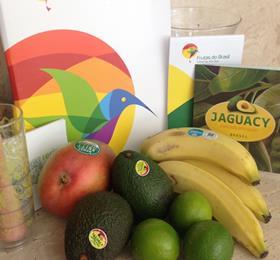
Brazilian fruit is looking to make big gains in the Middle Eastern and Asian markets next year, according to Eduardo Brandão, executive director of Brazilian fruit association Abrafrutas.
Melons, table grapes, mangoes and limes are the main products shipped to these markets, export data shows.
“There is a great expectation of growth in fruit exports to the Middle East (Saudi Arabia, Bahrain and the UAE, as well as to the Asian continent, specifically China and South Korea,” he said. “Our fruits have quality and are highly appreciated by these countries.”
Between January and October of this year, Brazil exported 725,000 tonnes of fruit, an increase of 2.8 per cent compared to the same period of 2019.
“Exports always peak in the last quarter of the year, when demand is greatest. Our aim is to end the year with US$1bn in revenue. If we do not reach the total value, we will be very close – everything will depend on the exchange rate,” Brandão said.
The Middle East took around 15,000 tonnes of Brazilian fruit in 2019, with the UAE absorbing the greatest share.
Abrafrutas said companies wishing to stand out in this market should certify their products as halal to demonstrate they have been grown in adherence to Islamic law.
Omar Chahine, commercial manager of Brazilian certifier Cdial Halal, said the certification has been increasingly required in Arab countries and beyond.
“In addition to being recognized for attesting to good manufacturing, safety and quality practices, halal certification has been requested, even by countries that are neither Arab nor Muslim, such as Japan, China and Canada,” he noted.
“Before, it was enough to have the certification of the product being exported, but today most importers are demanding the halal quality seal for the entire production chain.”



